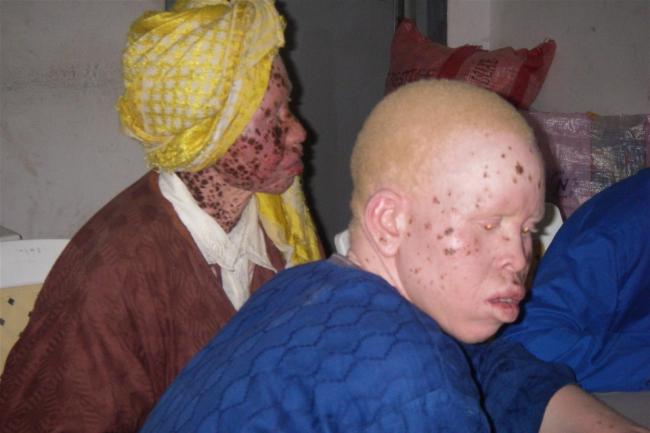28 Mar 2015, 06:12 pm Print

“We hope that this series of measures will result in a significant improvement in the security and well-being of people with albinism in Malawi,” the southern African country where at least six incidents have been reported this year, said Rupert Colville, spokesperson for the Office of the United Nations High Commissioner for Human Rights (OHCHR).
Colville welcomed President Mutharika’s statement last week in which he called on security agencies in Malawi to be placed on high alert, to arrest people responsible for such attacks and provide maximum protection to people with albinism.
And this week Malawi’s Minister of Gender, Children, Disability and Social Welfare, Patricia Kaliati, unveiled a five-point plan of action, which included the development of an education and awareness programme, strengthening of community policing structure, research to understand the root causes of the problem and what is done with the body parts of people with albinism.
We “urge the authorities to ensure that the Government’s action plan is fully implemented without delay,” Colville told reporters at the bi-weekly press briefing today in Geneva, Switzerland.
Noting the Minister’s reference to the Government considering appealing against some lenient sentences, the spokesperson said, “We would welcome this as well, and note that earlier this week a man received a sentence of just two years after being convicted of attempting to kidnap his 11-year-old niece Mina Jeffrey.”
Attacks against albinism had traditionally been recorded in Tanzania, Burundi and Malawi, Colville said, noting that it was a recent phenomenon in Malawi, while attacks have recently been reported in Mozambique.
The UN has expressed revulsion at a recent spike in gruesome attacks against people with albinism in several African countries where in the past six months, at least 15 albinos were abducted, wounded, or killed, including three such incidents last week.
In Tanzania, in early March, President Jakaya Kikwete promised to put an end to the current wave of killings in that country, saying he will not allow them to escalate as they have done in previous years.
“We have been informed that the Tanzanian authorities, in particular the Attorney General’s Chambers, have started to develop a plan of action to raise public awareness and fight against impunity,” according to spokesman Colville.
“We once again call upon the Tanzanian authorities to take prompt and firm action to ensure accountability for the crimes committed against people with albinism and to take effective measures to protect this particularly vulnerable group,” he said.
Colville also welcomed the establishment of the post by the UN Human Rights Council of an Independent Expert on the enjoyment of human rights of persons with albinism.
“This important new mandate will help give a voice to people with albinism and contribute to their protection, through a dialogue with concerned States, enhanced awareness raising and reporting, and the provision of advisory services and technical assistance,” according to the human rights spokesman.
Photo: IRIN/Helen Blakesley
- Trump signs 10% global tariff, says it takes effect ‘almost immediately’
- BJP wins a seat in Bangladesh — But not the one you think!
- Meet Shabana Mahmood: Could she take over as UK’s first Pakistani-origin Muslim PM?
- Dalai Lama's Office breaks silence on Epstein claims
- Russia says suspect in shooting of GRU Deputy detained in Dubai





-1763561110.jpg)
